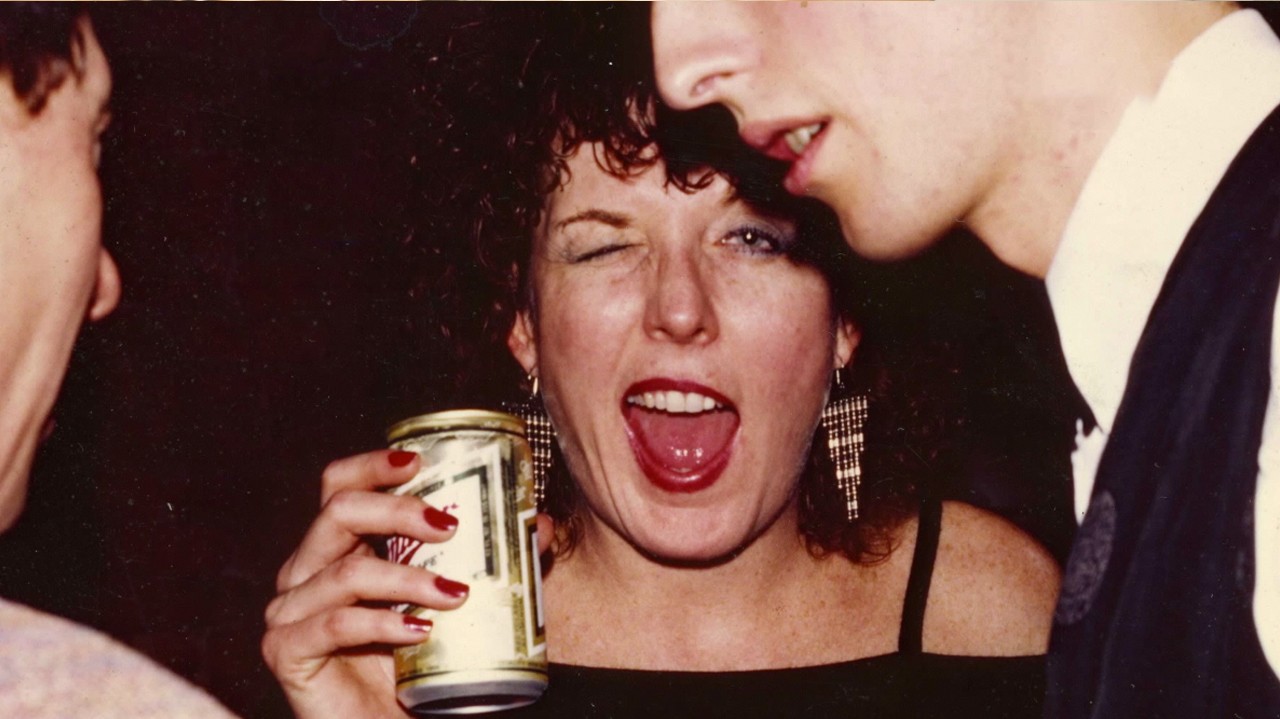Sharla Smith, who oversees sexual education for California's Department of Education, is exuberant. "I wish you could see the smile on my face," she says. Smith recently received the results of the Youth Behavior Survey from 2015 — "a real hot topic" — and the data suggests that, even before the passage of a bill that mandated comprehensive sex education, California was "blowing the doors off" other states when it came to teen sex."Thirty-two percent of California high schoolers have ever had sexual intercourse, as opposed to forty-one percent nationally!" she bellows. "Twenty-four percent of high schoolers were sexually active, compared to thirty percent nationally! And it just keeps getting better and better. I can't wait till they post all our most recent data because, I'm tellin' ya, we are already better on every health issue — minus kids wearing bike helmets. I'm not sure why California kids don't wear bike helmets."The Youth Behavior Survey, conducted every two years, is both an encyclopedia of every parent's worst nightmares and the plot essentials for a classic teen movie. Among other behaviors, the survey counts the number of students who wear seat-belts, drive drunk, have sex, buy cigarettes at gas stations, vape, do drugs, drink soda more than three times a day, and go to tanning salons.Smith is most concerned about ensuring that students have sex safely — or, better yet, that they don't have sex at all. As the official HIV/STD prevention education consultant for California's Dept. of Education, a position funded by the CDC, Smith wants to help the teens in the state's 1200 school districts stave off their desires so that California's teen birth and STD rates remain low. What makes now a particularly fascinating moment is that Smith is helming what's largely considered to be the most comprehensive sex education law in the US.The so-called Healthy Youth Act, first approved by California's governor in 2015, mandates that sexual education in the state include information on abortion, consent, sexual assault, and harassment. When it was passed, California was also the only state that required sex education be medically accurate, age-appropriate, LGBT-friendly, and culturally-inclusive."Money for compliance is just not available," she says. California stopped auditing districts for compliance about four years ago because of a lack of funding from the Centers for Disease Control and Prevention, according to an article in Mother Jones last year. "It remains to be seen what new funding opportunities will look like, though. It's possible it will come back."How state audits are funded at least partially depends on politics in Washington. During the Bush administration, for example, California progressive sex educators were repeatedly audited by the CDC for not adhering to abstinence-only education. But in the absence of hard data, it's challenging to see how much of an impact progressive sex education is having in California.Measuring compliance is also essential to understanding how to prevent sexual assault on campus, sex ed advocates say, because hot button issues like consent are baked into the bill."That kind of research would be really valuable, particularly since the Healthy Youth Act is the strongest, most comprehensive sex education act in the country," says Phyllida Burlingame, Reproductive Justice Policy Director for the ACLU of Northern California. "I'd love to see the impact of the consent and LGBT-inclusive pieces of the bill, especially," she says.Without the benefit of audit data, the ACLU has been forced to rely on other means to ensure students learn about more than storks. In 2012, the organization filed a lawsuit against Clovis Unified School District in Central California after discovering that the district failed to provide information about preventing STDs and preached abstinence by comparing non-virginal women to dirty shoes.
Watch: Artist Marilyn Minter on Depicting Female Sexuality
The group was successful in their suit, the first-ever ruling on California's 2003 sex education law, though the episode also opened the door for new ways to sabotage progressive sex ed policies. Since the passage of the Healthy Youth Act, districts from Fresno to Cupertino have fought the new education requirements, which some parents have called "overly graphic" because teachers are instructed to talk about "oral, vaginal and anal sex." Currently, the program remains in place even in districts that have opposed it, though parents can always choose to opt-out their children from instruction."Talking about sex in school can catch parents off-guard, especially when it's a change from their own experiences or new for the school," says Burlingame, who notes that a 2007 poll shows 89 percent of parents across the political spectrum still support comprehensive sex ed."I wasn't surprised," she says of the uproar in Fresno and Cupertino. "I've seen this before — a firestorm of anxiety being whipped up — but I also know that when parents and community members sit down with the science, curricula and laws, they understand that this is what works in helping teens answer these questions and grow in a healthy way."Abi Karlin-Resnick, executive director of the sex education company Health Connected, agrees. "For school districts that are extra sensitive to what parents think, this definitely starts some community conversations. This might be the first time parents have even thought about what kind of sex ed they want their kids to have. Does [using terms like oral, vaginal, and anal] encourage kids to do it? No, the research says the opposite. But that can be counterintuitive for parents."She adds that teachers are often grateful for being given the language to talk about sex. "It's a relief, like, 'Oh, we can finally have a conversation about this.' Even if some communities feel that this is being imposed on them by progressives, there's an on-the-ground understanding that all kids need a climate of support, respect, and dignity."In Health Connected's curriculum, topics like pregnancy options, sex and decision making, and sexual identity are covered in middle school. In a video Abi sent to me, a teacher thoughtfully answers a question from a middle-schooler about why people "switch genders.""In some cases, a person is born in a body and as they grow up and learn about themselves, they may feel that their identity inside doesn't necessarily match what their body assumes their gender might be," the teacher explains.Despite localized resistance and challenges when it comes to monitoring compliance, observers say comprehensive sex education in California is largely working as planned. In the midst of the Trump administration's threats to deprive nearly a million teens with resources to prevent pregnancy, Burlingame even sees California's program as a beacon of hope. She says she's seen "incredible progress" in many of the poorer, more conservative areas that are "highly in need" of this kind of better sex education."The area in the Central Valley has really turned around — they were, historically, teaching abstinence before marriage but over time, and particularly with the passage of the Healthy Youth Act, more districts are understanding the importance of comprehensive sex education," she says.
Advertisement
Advertisement
Prior to the passage of the act, California sex ed teachers were governed by similar laws. They had to ensure their lessons were age-appropriate, medically-accurate and appropriate for students of all orientations and disabilities. But the Healthy Youth Act went a few steps further, mandating that lessons be inclusive of same-sex relationships and gender identities, and that they emphasized communication and consent. According to data from the Guttmacher Institute, these additions put California at the front of the pack in terms of the breadth of requirements. "Compared to other states, this law seems to be a forerunner," the Berkeley Political Review wrote in 2016.But Smith is hampered in her efforts to ensure every student reaps the rewards of the act by factors outside her control: Because California stopped performing mandatory audits of schools more than five years ago, she says she lacks the funds and manpower to monitor how well districts are adhering to the broad and ambitious new law. Instead, she relies on a voluntary network to which schools share problems, concerns, and tips.Read more: Sex Ed Is a Basic Human Right We Deny to Teens Every Day
Advertisement
Advertisement
Watch: Artist Marilyn Minter on Depicting Female Sexuality

The group was successful in their suit, the first-ever ruling on California's 2003 sex education law, though the episode also opened the door for new ways to sabotage progressive sex ed policies. Since the passage of the Healthy Youth Act, districts from Fresno to Cupertino have fought the new education requirements, which some parents have called "overly graphic" because teachers are instructed to talk about "oral, vaginal and anal sex." Currently, the program remains in place even in districts that have opposed it, though parents can always choose to opt-out their children from instruction."Talking about sex in school can catch parents off-guard, especially when it's a change from their own experiences or new for the school," says Burlingame, who notes that a 2007 poll shows 89 percent of parents across the political spectrum still support comprehensive sex ed."I wasn't surprised," she says of the uproar in Fresno and Cupertino. "I've seen this before — a firestorm of anxiety being whipped up — but I also know that when parents and community members sit down with the science, curricula and laws, they understand that this is what works in helping teens answer these questions and grow in a healthy way."Abi Karlin-Resnick, executive director of the sex education company Health Connected, agrees. "For school districts that are extra sensitive to what parents think, this definitely starts some community conversations. This might be the first time parents have even thought about what kind of sex ed they want their kids to have. Does [using terms like oral, vaginal, and anal] encourage kids to do it? No, the research says the opposite. But that can be counterintuitive for parents."
Advertisement
The program also ensures that kids learn about important issues like consent from an early age. "For us, there's a very clear understanding that you can't just start talking about the idea of consent in college, which has been the knee-jerk reaction for the last couple of years," Karlin-Resnick says. "Even high school is too late."Instead, she says, it's good to teach kids to ask for permission—whether it's for a hug or access to a friend's curly hair -- as young as possible. "Otherwise, teens turn to pornography for 'practical' sex education and pornography generally does not provide examples of consent.""We try to tell these kids, 'if you're not ready to have these conversations, maybe you're not ready to have these experiences.'""For us, there's a very clear understanding that you can't just start talking about the idea of consent in college, which has been the knee-jerk reaction for the last couple of years."
